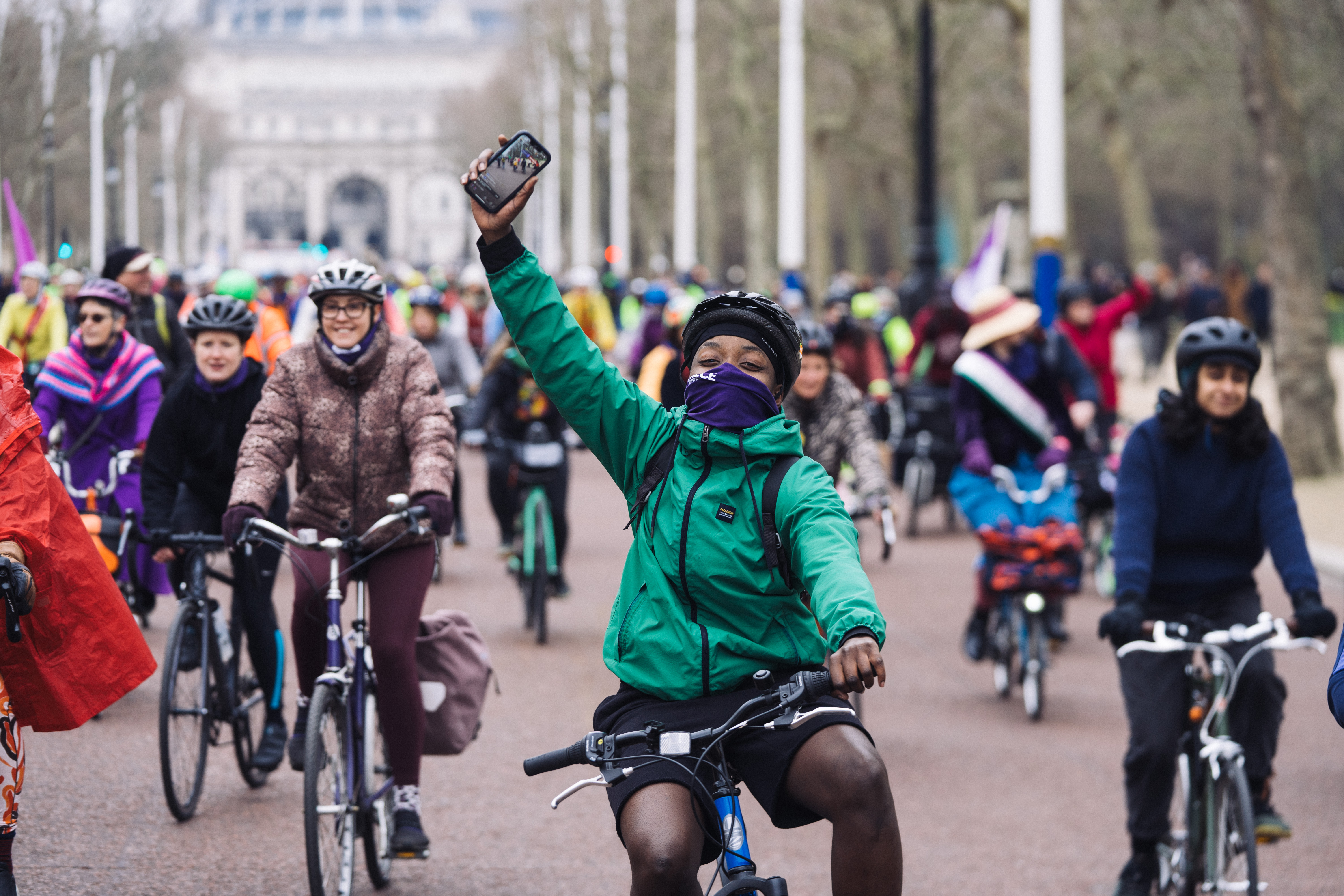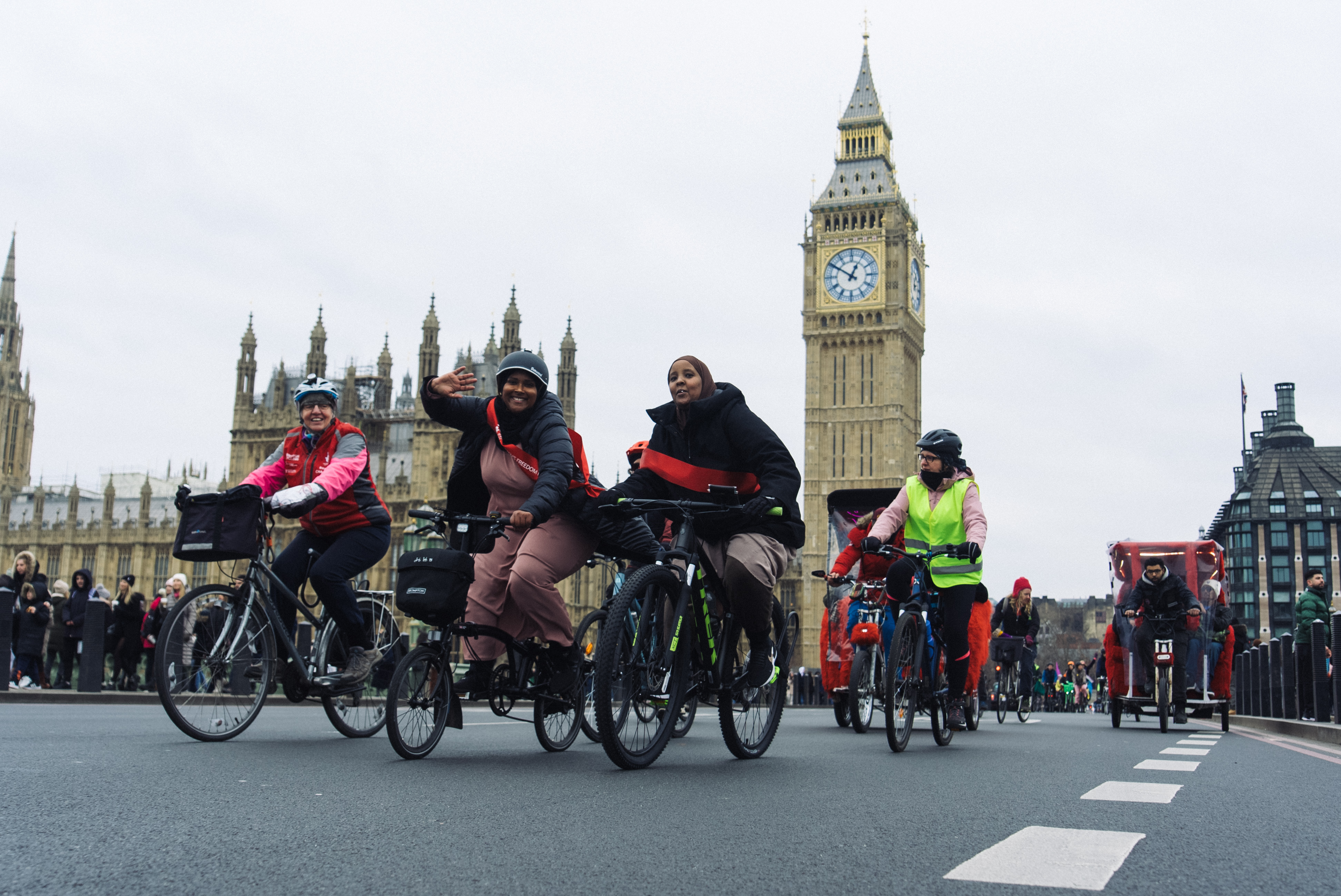'You get to a certain age and you start experiencing harassment': Campaign demands safer cycling for women in London
A petition will be presented to London' Walking and Cycling Commissioner at Freedom Ride this weekend


Misogyny, racism, body shaming – just three of the issues facing female cyclists that are being targeted by a petition that will be presented to the London Mayor's Walking and Cycling Commissioner Will Norman this Sunday.
The presentation will precede the second Women's Freedom Ride – a loop around the centre of London taking in landmarks including Oxford Circus, Piccadilly Circus, Trafalgar Square and The Mall, which will see 1,000 women take to their bikes.
The petition, signed by nearly 5,000 people, and the ride have been organised by the London Cycling Campaign charity alongside women's cycling group JoyRiders and Londra Bisiklet Kubulu (London Cycling Club).
The initiative, while spearheaded in London, could have far-reaching consequences, LCC organisers hope.
Transport for London certainly isn't unaware of the problem facing female cyclists, and last year commissioned a study into the abuses they were subject to.
LCC surveyed all those who rode the Freedom Ride last year and the results were "shocking", says Izzy Romilly – an LCC trustee and co-organiser of LCC's women's network.
"We were expecting to read some shocking stories, but I think the scale of it and reading nearly 1,000 stories, one after the other, of people who've had these pretty bad experiences. It really shocked us," she told Cycling Weekly.
The latest race content, interviews, features, reviews and expert buying guides, direct to your inbox!
"You wouldn't tolerate that kind of misogyny in the workplace or in other places, but it seems that somehow on the roads, that kind of abuse is quite common and quite public," Romilly says.
A cyclist herself, Romilly has been on the receiving end of the abuse herself: "I've been cycling in London since I was quite small," she says. "And then, you get to a certain age and you start experiencing harassment."
The statistics when it comes to the abuse of women on bikes are stark. The LCC survey showed nine out of 10 women have experienced abuse, while for 63% this remains a monthly occurrence. Of the 1,000 women surveyed, 93% also said that drivers have used their vehicle to intimidate.
LCC hopes to help address three key areas that will help make cycling safer for women: physical safety – including segregated cycle paths; social safety, including better police reporting of gendered abuse; and better local routes.

On physical safety, Romilly says: "We think that safe protected space for people on bikes that is physically separated from vehicles should be the norm on major roads.
"We hear this again and again – in our survey 88% said that they preferred cycling on protected cycle lanes or on low traffic routes. And within that, you've got people who said they wouldn't even cycle without them," she says, adding: "If we're going to start seeing cycling as a form of mass transport, I think safety is the number one barrier."
'Social safety', she explains, encapsulates a variety of issues, from not having to feel anxious about aggressive and oppressive driving or using an unlit cycle path at night, to police taking more seriously gendered abuse suffered by women cyclists. Of the 25 survey respondents who reported involving the police, only two saw any meaningful follow-up action, says Romilly.
LCC's third aim – better local routes – relates to the fact that women's journeys by bike tend to be shorter and often more complex.
"Obviously, that's not true across the board," Romilly points out. "But just one example of that is the school run: women in their thirties do four times the amount of school run distance [compared to] men, and I think that just illustrates the need for women to be able to get around local areas safely.
"Again, people in our survey told us that there were local journeys they would switch to doing by bike, if they had a proper, convenient, functional local network."
If successful, the results of LCC's initiative could reach well beyond the realms of London by showing what is possible, Romilly says.
"What we'd love to be able to do is demonstrate that if you build good infrastructure and put good initiatives in place, then the latent demand is there," she says.
"I think this is a question that people are trying to answer all over the country – how do we balance the needs of all of these different road users? How do we make streets safer for people who are walking and cycling and using public transport?"
After cutting his teeth on local and national newspapers, James began at Cycling Weekly as a sub-editor in 2000 when the current office was literally all fields.
Eventually becoming chief sub-editor, in 2016 he switched to the job of full-time writer, and covers news, racing and features.
He has worked at a variety of races, from the Classics to the Giro d'Italia – and this year will be his seventh Tour de France.
A lifelong cyclist and cycling fan, James's racing days (and most of his fitness) are now behind him. But he still rides regularly, both on the road and on the gravelly stuff.
